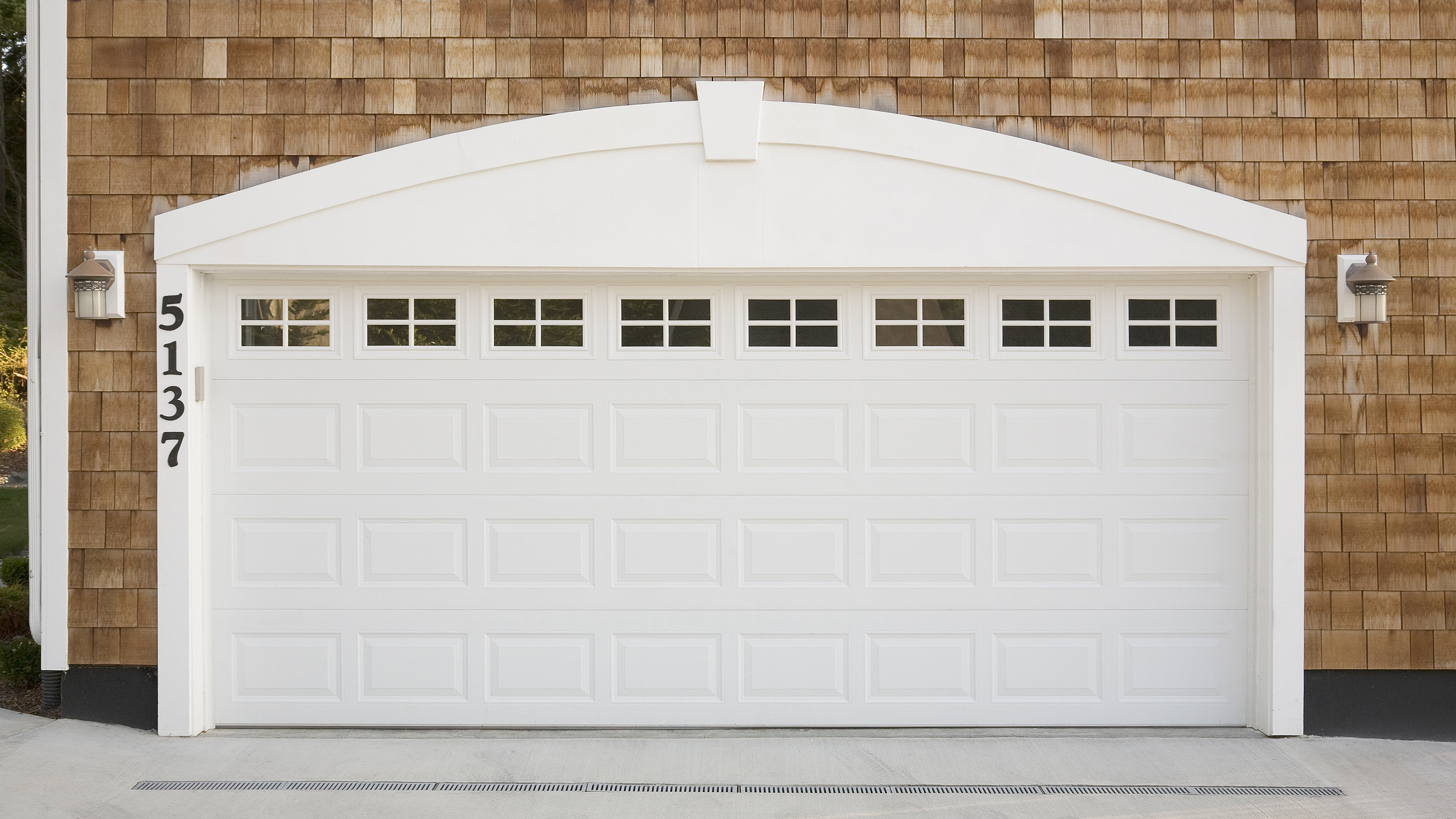How to lubricate a garage door – fix a noisy garage door fast
Find out how to lubricate a garage door and put a stop to the noise once and for all.


Get small space home decor ideas, celeb inspiration, DIY tips and more, straight to your inbox!
You are now subscribed
Your newsletter sign-up was successful
If you’ve got a noisy garage door, it’s likely to be a job you want to get on with in a hurry to quieten it down so it doesn’t disturb your household or the neighbors... And knowing how to lubricate a garage door is thankfully, well within your reach as a DIYer.
Lubricating a garage door regularly is actually just as important a part of your general maintenance and any other common garage door repairs. These slabs are large and heavy, whatever the style, so it’s important to look after them for safety reasons, plus keeping up with garage door care can mean spending less on repairs in the long run...
How to lubricate a garage door
No matter what type of garage door you have, it's usually the largest moving part of your home, and lubricating garage door openers is essential.
But before you begin, cut the power to the door, and bear in mind this advice from Andre Kazimierski CEO of Improovy: ‘Because most garage door lubricants come in an aerosol or spray can, it might be a good idea to wear a mask and goggles. You will also need a stepladder handy to reach the tracks up high.’
Shut the door, too. ‘Always lubricate your door with it closed because this allows the lubricant to get where it is needed and not drip all over the other parts of the door,’ says Ray Dal Soglio, owner and operator of AAlways Open Garage Doors.
What should you lubricate? Spend time on the rollers. ‘Spray the hinges and the wheels that go on the track,’ says Ray. ‘Spray the pins/axels that meet the rollers on the wheels. Do not spray the lubricant directly on the track, only on the rollers.’ Make sure you don’t spray nylon rollers, though, only steel rollers.
You should also pay attention to springs and bearings. ‘Spray the springs and bearings on top of the track where they connect to the door bearings and springs connect to the door,’ says Ray.
Get small space home decor ideas, celeb inspiration, DIY tips and more, straight to your inbox!
Garage door hinges also need light lubrication. ‘The best thing to fix a squeaky garage door is to lube the hinges where the metal meets metal,’ says Ray
It’s important to maintain the springs. ‘The extension or torsion spring should be lubricated or “wet”,’ explains Andrew Ervin, founder of Maxsin Investment Group. ‘As it dries, it creates greater wear when the coils compress under high tension.’
If your door has a chain-drive operating system, you should also ensure that the chain is greased.
How do I quiet a noisy garage door?
If your garage door is making a racket, it’s likely that it needs to be lubed. ‘The most common cause of a noisy garage door is that its parts need to be lubricated,’ says Andre Kazimierski. Which parts need to be lubricated? See above.
‘However, if that does not solve it, your door may be old or off balance, or its nuts and bolts simply need to be tightened.’ For the latter, you’ll need to tighten both door and track hardware, but make sure you don’t overtighten.
Worn rollers could be causing the noise – and if that’s the case, you might see wobbling, too. They’ll need replacement to quiet the door. Nylon versions can be a sound choice as they’ll make less noise than steel versions. They don’t need to be oiled either, saving you a maintenance job in the future.
The garage door springs could be the cause of the noise and if it’s not just that the door needs balancing and they’re in need of lubrication, replacement of the springs is the answer. Although, this could be a DIY job, generally the best option is to call in a professional, particularly if you have torsion springs.
Make sure you also check the tracks for debris, which could be making the door noisy. Brush them out carefully, or use a vacuum.
A banging door could mean you need a new seal at the bottom, and replacing it can quiet the sound. It’s a straightforward DIY job if you prefer not to call someone in and it’ll keep the interior of the garage free of drafts and stop water coming in as well.
What can I use to lubricate my garage door?
To lubricate a garage door, you need a lubricating silicon spray or white lithium grease, or go for a dedicated garage door grease.
You might be wondering if you should use WD-40, but the advice from the pros is no. ‘Do not use WD-40 because as it dries it collects dirt and causes the door to squeak even more,’ says Ray Dal Soglio.
However, there are specialist versions of WD-40 you could opt for, it you’re a fan with both a silicone lubricant and a white lithium grease product available.

Sarah is a freelance journalist and editor writing for websites, national newspapers, and magazines. She’s spent most of her journalistic career specialising in homes – long enough to see fridges become smart, decorating fashions embrace both minimalism and maximalism, and interiors that blur the indoor/outdoor link become a must-have. She loves testing the latest home appliances, revealing the trends in furnishings and fittings for every room, and investigating the benefits, costs and practicalities of home improvement. It's no big surprise that she likes to put what she writes about into practice, and is a serial house revamper. For Realhomes.com, Sarah reviews coffee machines and vacuum cleaners, taking them through their paces at home to give us an honest, real life review and comparison of every model.